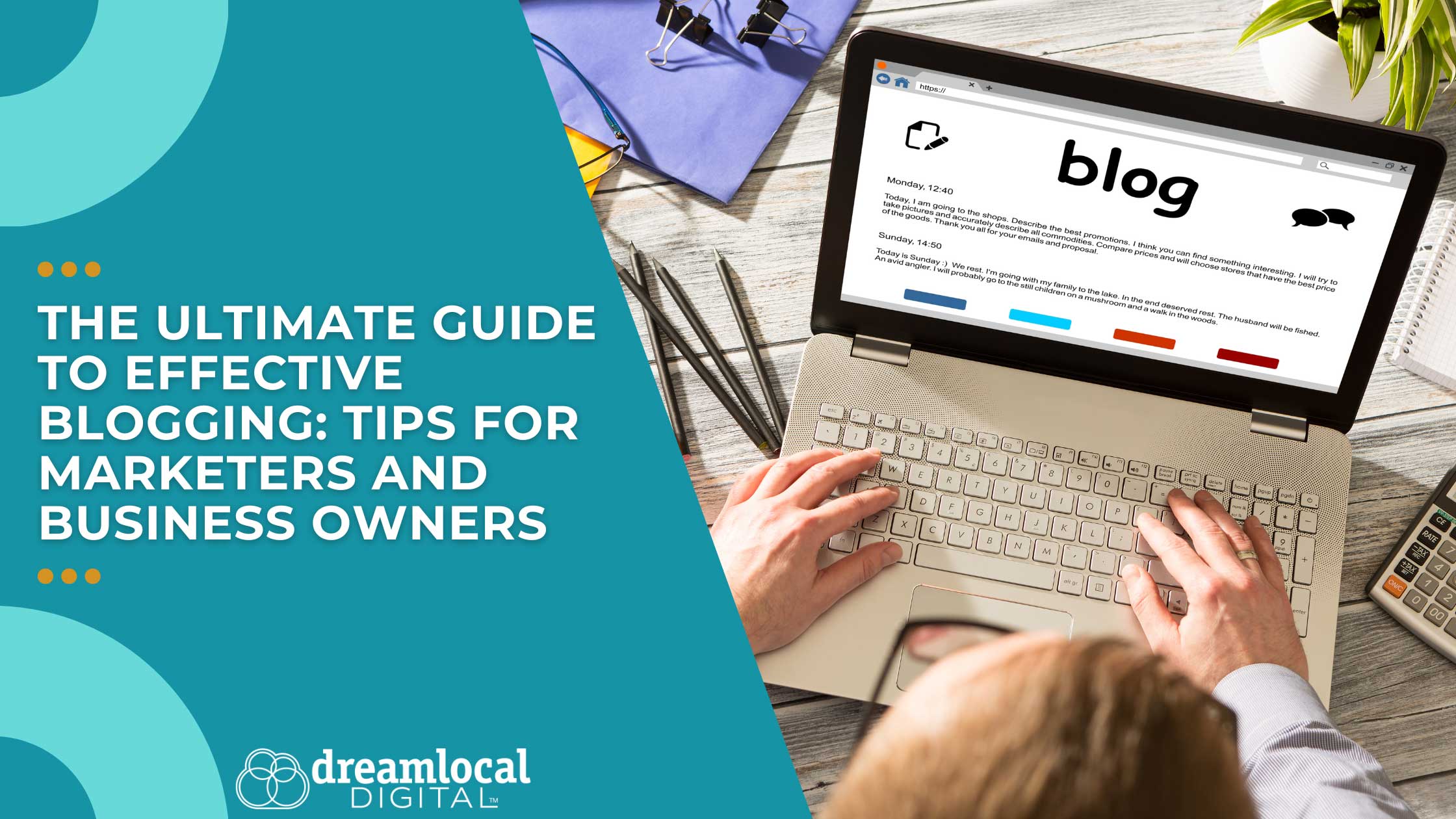The Ultimate Guide to Effective Blogging: Tips for Marketers and Business Owners

In our competitive online ecosystem, where consumers almost always look online for solutions and products, blogging is as essential as Wi-Fi at a coffee shop. In this guide, we cover the top benefits of blogging, plus the necessary steps to get started and see results.
How Does Blogging Benefit Your Business?
Before we get to the how, let’s cover the why. Why should you care about blogging? Here are the top benefits your business can reap from this powerful tool.
1. Boosts SEO and drives traffic
Regularly publishing high-quality, relevant content helps improve your site’s visibility on search engines. This increased visibility can lead to higher search engine rankings, driving more organic traffic to your site without needing paid advertising.
Why is a higher page ranking important? Because 91% of people don’t even scroll to the bottom of the first page, let alone click on the second or third page of search results. So, the higher your page ranks, the more visitors you will inevitably get.
Businesses can use free online tools to identify keywords to rank for, then begin creating their SEO and content marketing strategy. However, to get the best results, many businesses utilize marketing experts.
2. Showcases expertise
A blog provides a platform to demonstrate your expertise in your industry. You can position yourself as a thought leader by sharing valuable insights, how-to guides, case studies and industry news. This builds trust with your audience and attracts potential clients looking for knowledgeable professionals. Expert content creators can help ensure your blog posts are informative and engaging.
3. Builds brand authority
Consistently delivering high-quality content helps establish your brand as an authority in your field. When your audience sees you consistently providing valuable information, they are more likely to trust your brand.
This trust translates into customer loyalty and can increase customer retention and word-of-mouth referrals. Partnering with content marketing professionals can help maintain a steady flow of top-notch content that reinforces your brand authority.
Keys To Having an Effective Blog
Blogging has its perks, but they only count if your blog hits the mark. So, here’s how to create a blog that actually delivers for your business.
1. Know your audience
Understanding your target audience is crucial. Create detailed buyer personas to discover who your customers are, what they need, and how they behave. This will guide your content creation process — knowing what your audience cares about ensures your products, services and messaging are relevant and engaging.
2. Plan your content strategy
Develop a content calendar that outlines the topics you will cover and when you will publish them. This will help you stay organized and ensure you cover a wide range of important topics for your audience.
3. Write compelling content
Your posts should be informative, engaging and valuable. To keep your content interesting, use a mix of formats such as how-to guides, listicles, interviews and case studies. Incorporate storytelling techniques to make your content more relatable and memorable.
4. Optimize content for SEO
Conduct keyword research to identify the terms your audience is searching for. Incorporate these keywords naturally into your blog posts. Optimize your titles, headers, meta descriptions and images to improve your search engine rankings.
Internal linking to other relevant posts on your site can also boost your SEO performance. While these tasks can be managed internally, leveraging professional SEO services can maximize your content’s search engine potential.
5. Promote blog posts on social media
Promote your content on social media platforms to drive traffic and increase engagement. Share your posts on your business’s social media channels and encourage your followers to share them. Utilize hashtags and participate in relevant online communities to reach a broader audience.
6. Engage with your audience
Encourage comments on your blog posts and respond to them promptly. Engaging with your readers fosters community around your blog and shows that you value their input. Consider incorporating interactive elements such as polls, quizzes and surveys to increase engagement.
7. Analyze results and improve
Regularly analyzing your blog’s performance is crucial for continuous improvement. Use analytics tools to track metrics such as page views, bounce rate, and average time on the page. Identify which topics and formats resonate most with your audience and adjust your content strategy accordingly.
Ready to level up your blogging strategy? Contact Dream Local Digital today for expert guidance and solutions tailored to your business needs. Let’s boost your online presence together!
Newsletter Signup
Stay up to date on the latest digital marketing news, updates, and more. Sign up to receive our newsletter!




